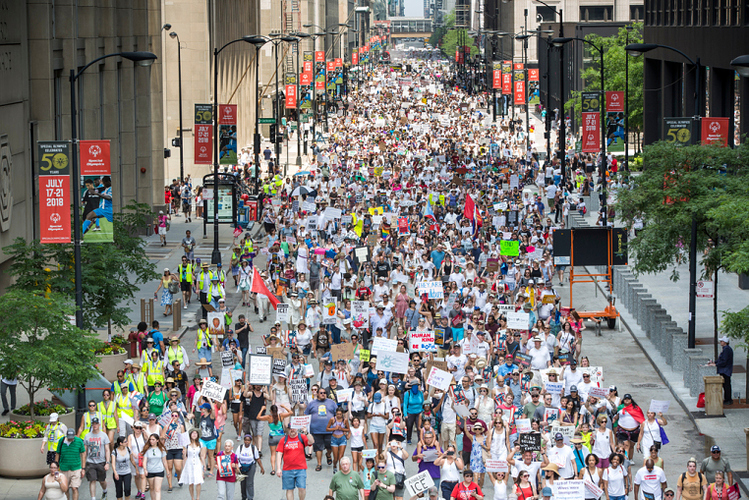At the website of the journal Social Text, Tavia Nyong’o and Kyla Wazana Tompkins offer “Eleven Theses on Civility,” a piece which seeks to question the dichotomy of “civility” and “incivility” in our present political moment. They suggest that calls for “civility” by the powers that be are actually efforts to pacify dissident movements and subjectivities. “Civility,” they write, “is the affective shape of administrative violence.” By contrast, “incivility is anger directed at unjust civil ordering.” Here’s an excerpt:
Calls for civility seek to evade our calls for change. The accusation of incivility is a technique of depoliticization aimed at undoing collectivity. We do not need to debate civility; we need to clarify, expand, and intensify our demands. How one responds to the charge of incivility is a useful litmus test separating liberals from radicals. Even when liberals and radicals must join causes, it is always useful to know where we stand: liberals individuate; radicals collectivize. When they tell us to be more civil, we need to go bigger, ask for more, come back harder.
Civility is a political aesthetic that obscures its politicity by asserting that it is “only” an aesthetic or a style. It is thus an aesthetic that is served by the assertion that aesthetics and politics are separate realms. Civility, particularly as it defends the separation of aesthetics from politics–or history–within institutional structures such as the university, is ultimately invested in the work of defending civilizational racism.
Image: Marchers in Chicago protest President Trump’s policy of separating immigrant families, July 2018. Via Chicago Sun-Times.
